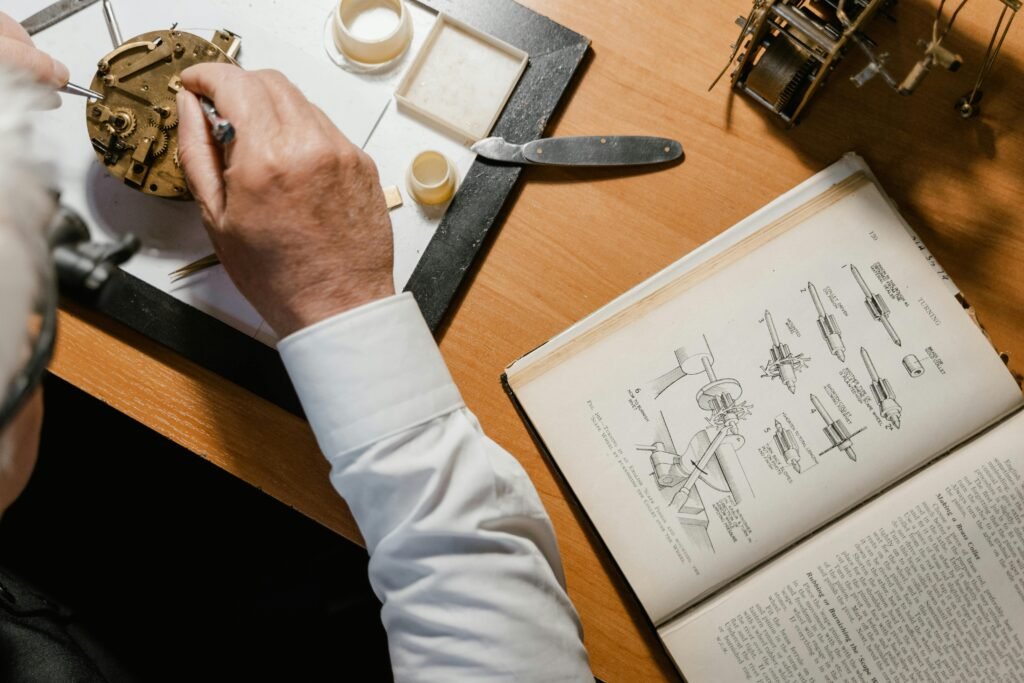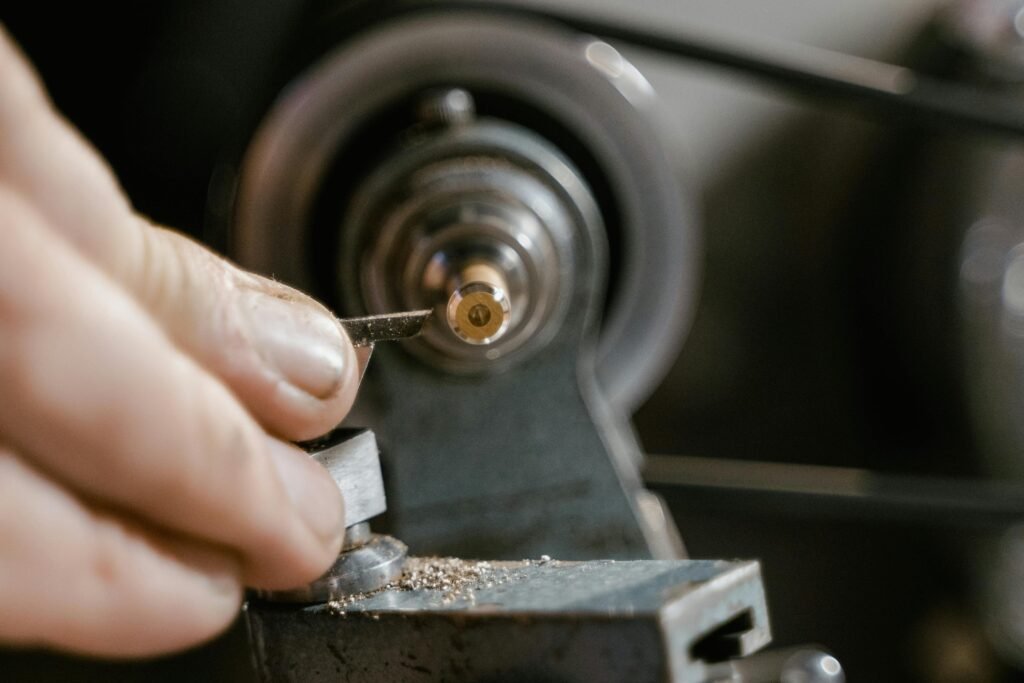Welcome to “Timeless Knowledge: Clock Making Workshops and Seminars” where you can unleash your creativity and learn the intricate art of clock making. These workshops and seminars offer a hands-on experience where you will learn the history of clock making, as well as the fundamental skills needed to craft your own unique timepiece. Whether you are a beginner or a seasoned hobbyist, these events are designed to inspire and educate in a friendly and supportive environment. Join us for a day of fun and discovery as you delve into the fascinating world of horology. Have you ever been curious about the intricate mechanics of a clock? Or maybe you’ve always wanted to try your hand at crafting your very own timepiece? Whether you’re a seasoned clock enthusiast or a complete beginner, clock making workshops and seminars offer a unique opportunity to learn and hone your skills in this timeless craft. Let’s dive into the world of clock making and explore the various workshops and seminars available to you.

This image is property of images.pexels.com.
The Art of Clock Making
Clock making is an ancient art that dates back centuries and has evolved over time with advancements in technology and materials. On a basic level, a clock consists of various components that work together to accurately measure and display time. From gears and springs to pendulums and chimes, each part plays a crucial role in ensuring the clock functions properly.
What Components Make Up a Clock?
Clocks can be mechanical, electronic, or a combination of both, but they all share some common components. Here are a few key parts you’ll find in most clocks:
| Component | Description |
|---|---|
| Movement | The part of the clock that drives the hands |
| Dial | The face of the clock where the time is displayed |
| Pendulum | Regulates the timekeeping of the clock |
| Weight | Provides energy for the clock to run |
| Hands | Indicate the time on the dial |
Understanding how each of these components works together is essential for anyone interested in clock making.
Types of Clock Making Workshops and Seminars
Clock making workshops and seminars come in various forms, catering to different skill levels and interests. Whether you’re looking to build a simple clock or delve into the intricacies of clockwork mechanisms, there’s a workshop or seminar out there for you.
Beginner Workshops
Beginner workshops are perfect for those with little to no experience in clock making. These workshops typically cover the basics of clock assembly, including how to put together a clock movement, attach the hands, and set the time. Participants will often work with pre-fabricated clock kits that come with all the necessary parts and instructions.
If you’re new to clock making, a beginner workshop is a great way to dip your toes into the craft and learn the fundamentals.
Advanced Seminars
Advanced seminars are designed for experienced clock makers looking to hone their skills or tackle more complex projects. These seminars may delve into topics such as designing custom clock movements, repairing antique clocks, or experimenting with different escapement mechanisms.
If you’re already familiar with the basics of clock making and want to challenge yourself with more advanced techniques, an advanced seminar is the perfect opportunity to expand your knowledge.
Specialty Workshops
Specialty workshops cater to specific interests within the realm of clock making. These workshops may focus on a particular style of clock, such as wall clocks, mantel clocks, or grandfather clocks. Other specialty workshops may explore unique materials or techniques, such as wooden gear clocks, glass clocks, or steampunk-inspired designs.
If you have a specific type of clock in mind that you’d like to learn more about or create, a specialty workshop can provide you with the in-depth knowledge and hands-on experience you’re looking for.

This image is property of images.pexels.com.
Benefits of Attending Clock Making Workshops and Seminars
Attending clock making workshops and seminars offers a range of benefits beyond just learning how to build a clock. Whether you’re a hobbyist, a craftsman, or simply curious about the inner workings of timepieces, here are some advantages of participating in these events.
Hands-On Experience
One of the most significant benefits of attending clock making workshops and seminars is the opportunity for hands-on experience. Instead of just reading about how clocks work or watching videos online, you get to roll up your sleeves and actually build a clock yourself. This tactile experience allows you to better understand the mechanics of a clock and develop practical skills that you can apply to future projects.
Expert Guidance
Clock making workshops and seminars are typically led by experienced instructors who are passionate about sharing their knowledge with others. These experts can offer guidance, tips, and tricks to help you navigate the complexities of clock making. Having access to an experienced instructor can make a world of difference, especially when you encounter challenges or have questions along the way.
Community and Networking
Clock making workshops and seminars provide a space for like-minded individuals to come together and share their love for clocks. Whether you’re a solo hobbyist or part of a local clock club, these events offer an opportunity to connect with others who share your passion. Networking with fellow clock enthusiasts can lead to new friendships, collaborations, or even mentorship opportunities within the clock making community.
Inspiration and Creativity
Building a clock from scratch is a creative endeavor that allows you to express yourself and experiment with different designs and ideas. Attending workshops and seminars can spark inspiration and ignite your creativity, challenging you to think outside the box and push the boundaries of traditional clock making. Whether you’re drawn to classic clock designs or futuristic concepts, there’s no limit to what you can achieve with a little imagination.
How to Choose the Right Workshop or Seminar
With so many clock making workshops and seminars available, it can be challenging to determine which one is right for you. Here are a few tips to help you choose the perfect event that aligns with your interests and goals.
Determine Your Skill Level
Before signing up for a workshop or seminar, assess your current skill level and experience in clock making. If you’re a complete beginner, you’ll want to prioritize workshops that cater to newcomers and cover the basics of clock assembly. On the other hand, if you’re an experienced clock maker looking to take your skills to the next level, advanced seminars may be more suitable for you.
Research the Curriculum
Take the time to research the curriculum and course offerings of each workshop or seminar you’re considering. Look for events that align with your interests and goals, whether you’re interested in building a specific type of clock, learning a new technique, or exploring the history of clock making. Reading through the workshop descriptions and instructor bios can help you determine if the event is the right fit for you.
Consider the Format
Clock making workshops and seminars can vary in format, from hands-on building sessions to lecture-style presentations. Consider what type of learning environment works best for you and choose an event that aligns with your preferred learning style. Some people thrive in a hands-on workshop where they can actively participate in building a clock, while others may prefer a seminar format that focuses on in-depth lectures and discussions.
Budget and Logistics
Lastly, consider your budget and logistical constraints when choosing a workshop or seminar. Factor in the cost of registration, materials, and travel expenses, as well as the location and duration of the event. If you’re on a tight budget or unable to travel, look for local workshops or online seminars that offer flexibility and affordability.

This image is property of images.pexels.com.
Conclusion
Clock making workshops and seminars provide a unique opportunity to dive into the world of clockwork and learn from experienced instructors in a hands-on setting. Whether you’re a beginner looking to build your first clock or an advanced maker seeking to expand your skills, there’s a workshop or seminar out there for you. By attending these events, you’ll gain valuable hands-on experience, access expert guidance, connect with fellow clock enthusiasts, and unleash your creativity in a supportive and inspiring environment. So why wait? Sign up for a clock making workshop or seminar today and embark on a fascinating journey into the art of timekeeping.
